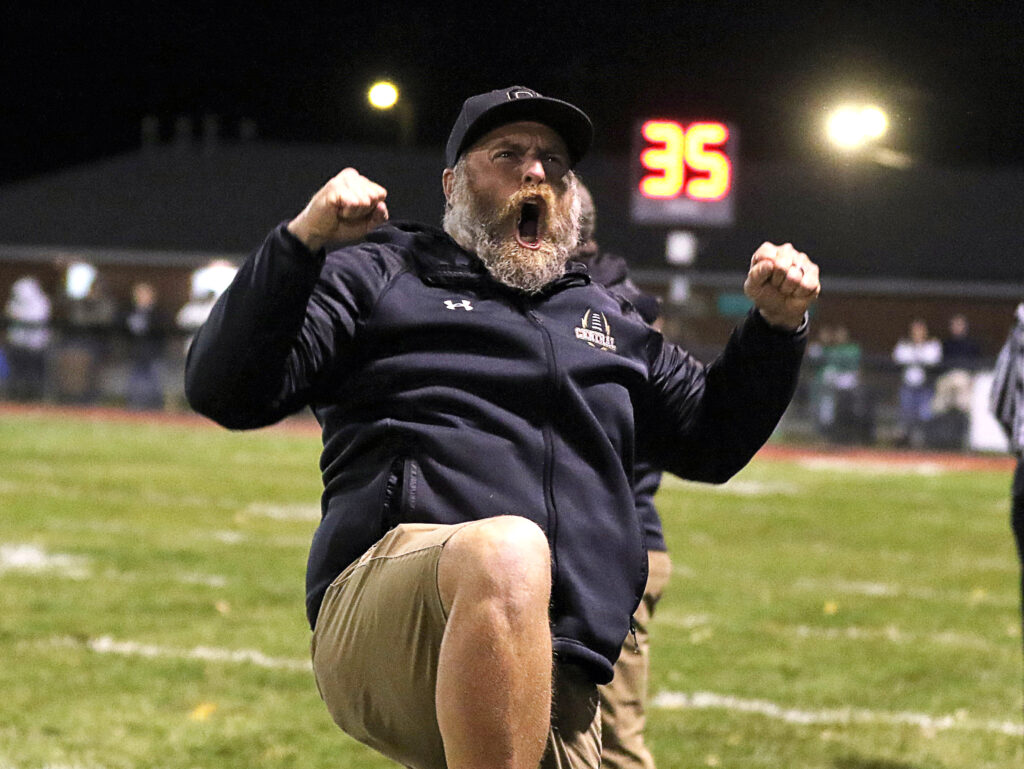Embracing Mudita: The Joy of Others' Success in Sports and Life

In a recent episode of the Mental Mettle Podcast, host Coach Matt Thomann introduced listeners to a powerful concept that's transforming team dynamics in high school football and beyond: mudita. This Buddhist term, which describes the joy derived from delighting in the well-being of others, is being embraced by innovative coaches like Mike Kohl of Bradley Bourbonnais High School.
The Power of Mudita in Team Sports
Imagine a football team where players genuinely celebrate each other's successes more than their own. It might seem like a stretch, especially when dealing with teenagers, but the potential benefits are immense:
- Improved team cohesion
- Reduced internal competition and jealousy
- Enhanced overall team performance
- Personal growth and character development for players
Coach Mike Kohl has made mudita a cornerstone of his coaching philosophy at Bradley Bourbonnais High School. He believes that this principle can be taught and developed in young athletes, just like any other skill. The results have been remarkable, with Kohl noting that his players don't feel "greater than or less than" after wins or losses, indicating a profound shift in team mentality.
Watch the Mental Mette Podcast episode featuring Coach Kohl
From Concept to Practice
Some ways coaches can foster mudita in their teams include:
- Regularly recognizing and celebrating team members' efforts and achievements
- Encouraging players to express appreciation for each other
- Modeling mudita as a coach by genuinely delighting in players' successes
The Impact on Team Culture
By focusing on mudita, Coach Kohl has observed a remarkable shift in his team's mentality. Players don't feel "less than" after a loss or "greater than" after a win. This emotional stability is a direct result of emphasizing the process and collective growth over individual outcomes.
Mudita Beyond Sports
While the podcast discussion centered on football, the concept of mudita has far-reaching applications:
- In the workplace: Fostering a culture where colleagues celebrate each other's achievements can lead to increased productivity and job satisfaction.
- In education: Students who learn to delight in their classmates' successes may experience reduced academic stress and improved collaborative learning.
- In personal relationships: Practicing mudita can strengthen bonds between friends and family members, creating a more supportive and positive environment.
- In personal development: By focusing on others' successes, individuals may find greater contentment and reduced feelings of envy or inadequacy.
Mudita and Mental Toughness
Incorporating mudita into coaching practices aligns perfectly with building mental toughness and resilience. When players learn to find joy in their teammates' successes, they develop a more positive, growth-oriented mindset that serves them well both on and off the field.Coach Thomann emphasizes that skills like mudita can be developed through deliberate practice. They aren't magical traits but capabilities we can intentionally forge.
Challenges and Considerations
While the benefits of mudita are clear, implementing this concept, especially with young athletes, can be challenging. It requires:
- Consistent reinforcement and modeling by coaches and leaders
- Patience as team members learn to shift their mindset
- Creating a safe environment where vulnerability and genuine celebration of others is encouraged
Conclusion
As we continue to explore innovative approaches to coaching and team building, the concept of mudita offers a refreshing perspective. It challenges us to rethink success and competition, fostering an environment where everyone truly rises together.By embracing mudita, coaches like Mike Kohl are not just building better football teams – they're shaping young athletes into more empathetic, resilient, and mentally tough individuals ready to face life's challenges. Whether in sports, business, education, or personal relationships, the practice of finding joy in others' success has the potential to transform our communities and enrich our lives.As we move forward in 2025, consider how you might incorporate mudita into your own life and leadership. The benefits extend far beyond the football field, offering a path to greater personal fulfillment and stronger, more supportive communities.
Are you ready to forge your mettle?
More From Mental Mettle

Episode 98: Less Scroll, More Soul: The Benefits of a Digital Detox

Episode 97: Training the D1 Body and Mind with Terrell Washington of Grindhouse Sports Training

From Small-Town Star to Big Ten Football: Lessons on Overcoming Adversity

Episode 96: Roots of Resilience: How Team Culture Built Illini Bryce Barnes

Episode 95: The Physical and Mental Edge: Brad Dixon on Sprint-Based Football

